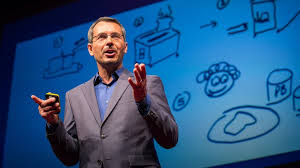from ToDo Institute
“To know how to grow old is the masterwork of wisdom, and one of the most difficult chapters in the great art of living.”
– Henry Amiel (1874)
In George Vaillant’s recent book, Aging Well: Surprising Guideposts to a Happier Life (Little, Brown and Co., 2002) he shares his conclusions about healthy aging. He knows a lot about it. He’s directed the Harvard Study of Adult Development for the past 35 years, arguably the longest study of aging in the world. The study has followed 824 men and sixty women for more than 60 years. Vaillant claims that there are seven key indicators of a person’s life at age 50 that are pretty good predictors of where they will be (or if they will be) at age 80. As the study participants are now reaching age 80, Vaillant characterizes the most successful group as the Happy-Well. These individuals were, by age 75, still physically active, happily married, had rewarding friendships, did not take psychiatric medication and were very satisfied with their lives. The opposite category were people characterized as the Sad-Sick. Here are the seven indicators that, at age 50, most successfully predict where you’ll be thirty years later.
- Not Being a Smoker (or Quitting When You’re Young)
Not being a heavy smoker before the age of 50 was the most important single predictive factor of healthy physical aging. Among those with college educations, heavy smoking (more than a pack a day for thirty years) was ten times more frequent among those who died prematurely than among the Happy-Well. Yet if a man stopped smoking by about age 45, the effects of smoking (as much as one pack a day for twenty years) could, at age 70 or 80, no longer be discerned.
- Adaptive Coping Style
The second most powerful predictor of being among the Happy-Well was an adaptive coping style. An adaptive coping style refers to “mature defenses” our ability to turn lemons into lemonade and not turn molehills into mountains. Such a style was common among the Happy-Well and virtually absent among the Sad-Sick. An adaptive coping style did not predict the men’s objective physical health in the study. But it often did keep objectively disabled men from feeling subjectively disabled.
- Absence of Alcohol Abuse
This is the only factor in the study that powerfully predicted both psychosocial and physical health. Alcohol abuse was defined as multiple alcohol-related problems (with spouse, family, employer) or evidence of alcohol dependence. The study reveals that alcohol abuse is a cause rather than a result of increased life stress, of depression, and of downward social mobility.
4-6. Healthy Weight, Stable Marriage and Regular Exercise
These three protective factors were also important to healthy aging. Obesity, like smoking, was bad only for physical health. Good marriages and exercise were good for both physical and psychosocial health.
- Years of Education
A
According to Vaillant, the above seven factors allow us to predict healthy aging thirty years into the future. 106 Harvard men enjoyed 5-6 of these factors at age 50. At 80, half of these men were among the Happy-Well and only eight of them among the Sad-Sick. Conversely, 66 Harvard men possessed fewer than four protective factors at age 50. At age 80, not a single one of them were among the Happy-Well. About 33% of them belonged to the Sad-Sick at age 80. Also, factoring out acts of God, these 66 men still in adequate physical health at age 50, but with fewer than four protective factors were three times as likely to be dead thirty years later as men with more protective factors. A similar long term study of women (referred to as the Terman study started at Stanford University) showed that these same factors were also important to the aging of women. Eighty percent of the women in this study who were classed among the Sad-Sick or Prematurely Dead had enjoyed three or fewer protective factors at age 50.
Vaillant concludes,
“The good news is that most of us if we start young and try hard can voluntarily control our weight, our exercise, and our abuse of cigarettes and alcohol, at least by the time we are fifty. . . we can improve our relationships with our most significant other and use fewer maladaptive defenses. . . Whether we live to a vigorous old age lies not so much in our stars or our genes as in ourselves.”
Vaillant has made a valiant attempt to take an academic study and report it in a way that provides sound, common sense advice to readers. And many of its conclusions, like those above, are not necessarily surprising. Perhaps one of the most interesting conclusions is that by the time you are age 50, many of the factors thought to be developmentally important like birth order, death of a parent, happy vs sad childhoods, even the genes we inherited, are relatively unimportant factors in where you go from there. If you’re interested in learning the lessons of aging from those that have gone before you, this book is an excellent map.
Material from the book Aging Well by George Vaillant, M.D. and the Boston Globe (December 32, 2001) was incorporated into this review/essay. The book Aging Well is available from the ToDo Institute bookstore for $25 ($22.50 for members) by calling (800) 950-6034.
Jumping People Photo by Ashley Hiller (CC FLickr)
People Learning Photo by ITU Pictures (CC Flickr)
Tags: Health












